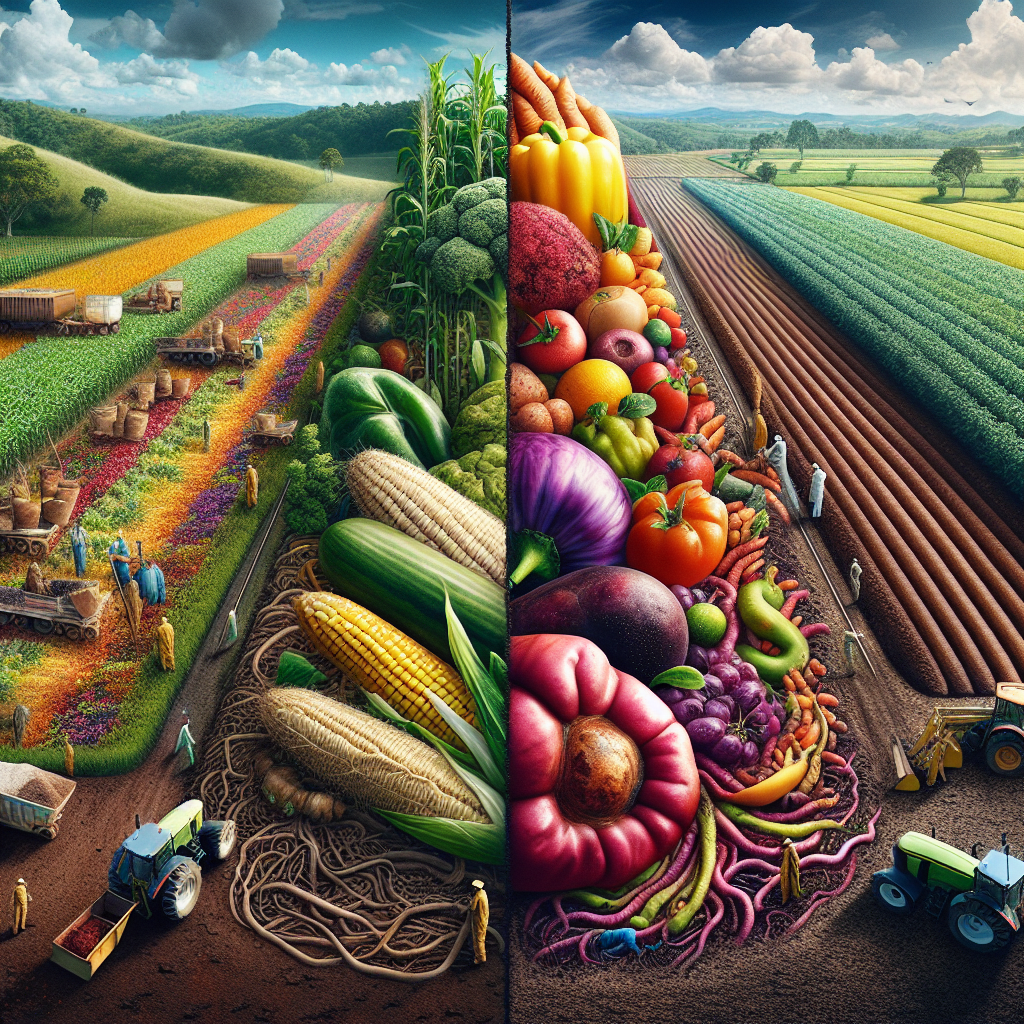Myth 1: Organic Food Is Just a Marketing Ploy
One of the most persistent myths about organic food is that it’s merely a clever marketing strategy to charge higher prices. However, organic farming is governed by strict regulations. In the U.S., the USDA Organic certification requires farmers to avoid synthetic pesticides, genetically modified organisms (GMOs), and artificial fertilizers. These standards are far from arbitrary—they’re backed by rigorous scientific assessments of environmental and health impacts.
The Standards Behind Organic Certification
To earn the USDA Organic label, farms must undergo annual inspections and adhere to specific practices, including:
- No synthetic pesticides or herbicides
- Non-GMO seeds and crops
- Soil health management through crop rotation and composting
- No antibiotics or synthetic hormones in livestock
These measures ensure that organic food production prioritizes sustainability, even if skeptics dismiss it as a “premium” label.
Myth 2: Organic and Conventional Foods Are Nutritionally Identical
Another common argument is that organic food offers no nutritional advantage. While studies have shown mixed results, a growing body of research suggests organic produce may contain higher levels of certain nutrients and antioxidants. A 2014 meta-analysis in the British Journal of Nutrition found that organic crops had significantly higher concentrations of antioxidants and lower levels of pesticide residues.
The Science of Nutrient Density
Organic farming practices, such as fostering healthy soil microbiomes, can enhance nutrient absorption in plants. For example:
- Polyphenols: Organic fruits and vegetables often contain 20-40% more of these disease-fighting compounds.
- Vitamin C: Some organic crops show modestly higher levels, particularly in berries and leafy greens.
- Omega-3s: Organic dairy and meat have been found to contain up to 50% more beneficial fatty acids due to pasture-based diets.
While the differences may not be dramatic, they challenge the idea that organic and conventional foods are nutritionally equivalent.
Myth 3: Pesticide Residues Are Harmless in Conventional Foods
Critics often downplay concerns about pesticide residues, claiming they’re well below “safe” limits. However, regulatory thresholds don’t account for cumulative exposure or the “cocktail effect” of multiple chemicals. The Environmental Working Group’s (EWG) annual Dirty Dozen list highlights produce with the highest pesticide loads, such as strawberries and spinach, where residues frequently exceed recommended levels.
The Hidden Risks of Long-Term Exposure
Research links prolonged pesticide exposure to health risks, including:
- Developmental delays in children
- Hormone disruption
- Increased risk of certain cancers
Organic food, with its negligible synthetic pesticide use, offers a way to minimize these risks without waiting for regulatory agencies to tighten standards.
Myth 4: Organic Farming Can’t Feed the World
Skeptics argue that organic farming’s lower yields make it impractical for global food security. However, studies like the 30-year Rodale Institute trial show organic systems can match conventional yields over time while improving soil health and resilience to climate extremes.
Sustainability Over Short-Term Output
Organic farming focuses on long-term sustainability through:
- Soil regeneration: Organic practices increase carbon sequestration, combating climate change.
- Water conservation: Reduced chemical runoff protects waterways.
- Biodiversity: Organic farms support 30% more species on average.
While transitioning global agriculture would require systemic changes, dismissing organic methods ignores their role in creating a resilient food system.
Myth 5: Organic Food Is Too Expensive
Cost remains a barrier for many, but the price gap reflects the true cost of production—conventional farming externalizes expenses like environmental cleanup and public health impacts. Strategies to make organic food more accessible include:
- Buying seasonal produce
- Joining a CSA (Community Supported Agriculture) program
- Prioritizing the Dirty Dozen when budgeting
When viewed through the lens of long-term health and environmental savings, organic food’s value becomes clearer.
The Bottom Line
Organic food isn’t a perfect system, but the myths dismissing it often overlook its verified benefits—from fewer pesticides to ecological advantages. While individual choices depend on budget and access, the evidence confirms that organic farming offers tangible differences worth considering.
